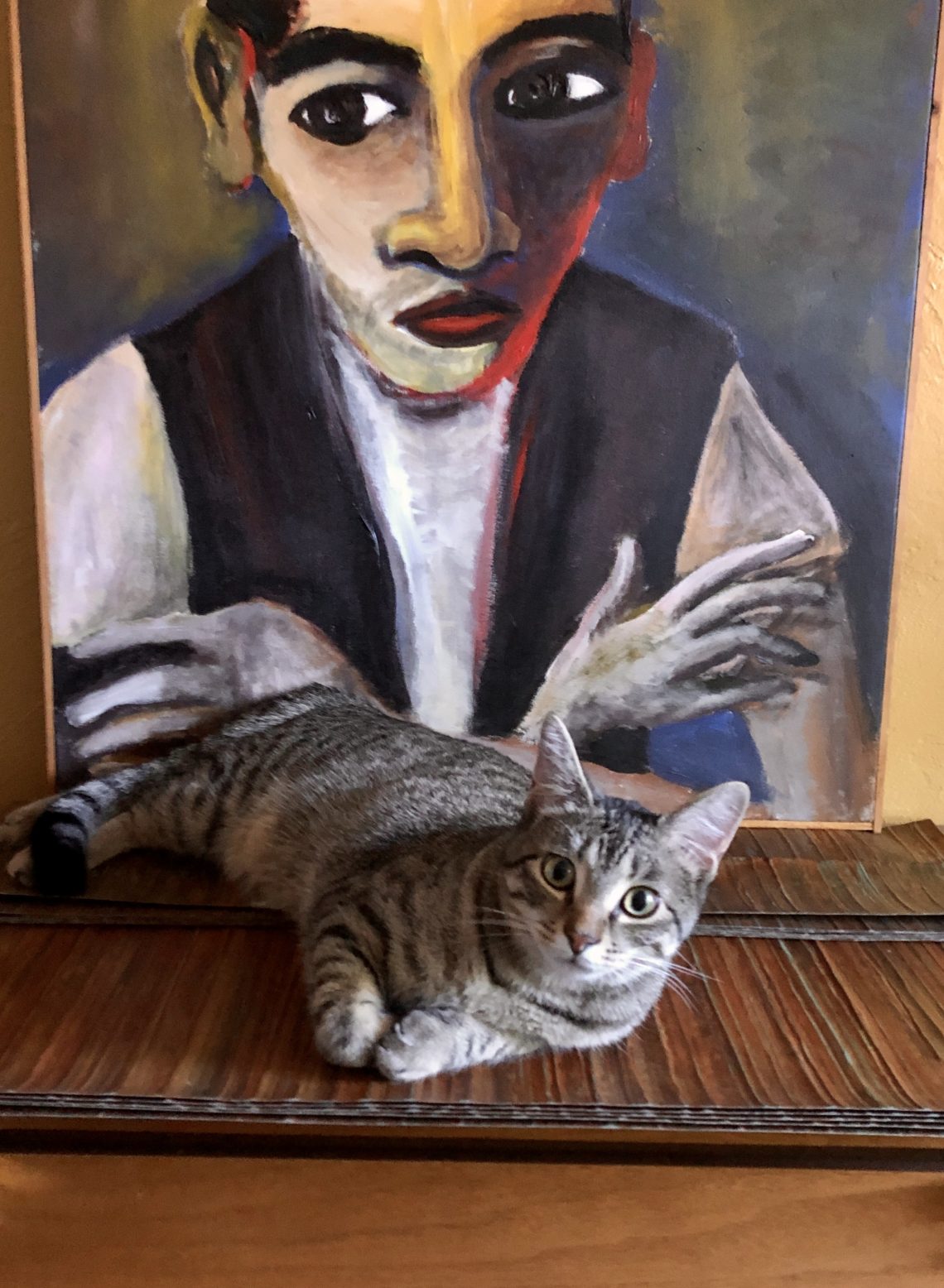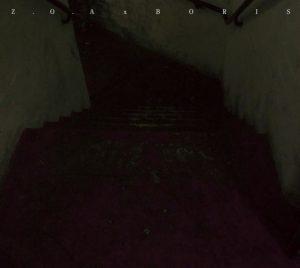
You must go on, I can’t go on, I’ll go on.
Like laughter, expressions of rage may become universal language — and Boris is furious. The group that has often been both loud and fast, is still in total control.
Their fury has become distilled to the extent that the songs, though sung in Japanese, (a language foreign to me,) wed their lyrical, vocal, and instrumental passion and savagery to convey an entirely comprehensible and desperate message.
Amid all the quiet and contemplative “bedroom” records that are currently making the scene, (mainly in response to a global pandemic, and in response to a swirling storm of divisive hatred in the U.S.,) it is damned refreshing to listen to Boris’s eruptive expressions of wrath.

The experimental rock trio was formed in Tokyo over 25 years ago, and it’s always fun to find that there is a new release by Boris. Much of the fun comes because the group blurs, twists, and reinvents genres so effectively and so often that you never know what you are going to get. New releases have been frequent too, because Boris is prolific by almost any standard – some 40 LPs, EPs, and collaborative releases in 28 years. They have two releases alone between March and July of the current year.
All three members are vocalists with Wata working her blistering guitars, echo, and pedal effects; Atsuo handles percussion and electronics; and Takeshi plays bass and guitar.

Their sonic palette skews dark and very heavy, (many listeners associate Boris with the genres doom, drone, and heavy metal.) Boris primarily uses a mix of their mastery of thrash, doom, drone, punk and metal, but even as they are firmly a part of creating the legacy of these types of music, (with bands like Motörhead, Metallica, Anthrax, and Black Sabbath,) Boris is updating and extending the sounds of these musical forms.
But, as mentioned before, the group is not limited by genre in any way. Stretching themselves and being Experimental is the point of their ongoing project. You will find their work contains gorgeous acoustic offerings, glam, and shoegazy-psychedelic numbers sprinkled in among their expertly crafted sludge.
The March release, (Refrain) If you/En attendant Godot, is a collaboration with Japanese industrial hardcore act, Z.O.A. Refrain contains only a single song, a 33-minute long suite. Refrain is a wonderfully self-contained representation of the massive diversity of musical ideas that Boris is capable of conceiving and executing. For instance, the suite begins with a quiet jazzy electric guitar and is joined by jazz bass, drums, and a plaintive jazz vocal. These strains carry the song along for the first four minutes or so. Then, the number is split wide open like dry wood, with slashing, sustained metal riffs and gnarly feedback splintering the song. There is a barrage of rhythms accompanying the guitar discourse continuing through the next 10 minutes. Then the song dissolves into a beautiful echoing of church bells and quietly strummed, repetitive guitars chords. Listeners who will take this musical journey are treated at midway to a murmuring interval; then they must strap in — they are in for the second half (!) of this meditative sensory marvel.

Here is a link to all 1,980 gloriously noisy seconds:
(Refrain) If you/En attendant Godot by Z.O.A and Boris (2020 Fangs Anal Satan).
The second part of the suite’s subtitle is relevant and timely. It comes from Samuel Beckett, (in English: Waiting for Godot,) a sadly comic and violent play about the anxiety, loneliness, and the uncertainty of human expectations. The play’s set consists only of a withered tree at center stage. Beneath it, two tramps wait, giddily, apprehensively, and in vain, for the promised arrival of a mysterious Monsieur Godot. (Will he make everything okay?) The two characters bicker and conspire; they protest one another, negotiate reconciliation, witness the horrific injustice and senseless brutality of a bizarre master/slave relationship, contemplate taking their lives… and repeat. All the while they wait. And wait. And wait.
O, Anxiety.
The title of this post comes from Beckett, too, from another work written in the same vintage as Godot, called The Unnamable. The full quote: “Dear incomprehension, it’s thanks to you I’ll be myself, in the end. It will be I, it will be the silence, where I am, I don’t know, I’ll never know, in the silence you don’t know, you must go on, I can’t go on, I’ll go on.”
Beckett’s masterful sentiment in that quote alerts us to what is for many people a powerful philosophical and experiential cycle. First, one (mainly) cannot know what lies ahead. Next, one (mainly) senses the raw bewilderment of being unable to know. And in response, one repeats this sensational loop “…must go on, I can’t go on, I’ll go on.” What else can one do?
For some, going on is an act of defiance, for some an act of discipline, and for others, an act of resignation. In any case, Beckett’s cyclical sentiment extends beautifully to Refrain, and it also extends to Boris’s scorching follow-up July release, called No.
The structure of No will be more recognizable to listeners, as it is made up of eleven shorter songs instead of one long song. The mood of the first ten songs is inspired by anger — anger coming in the form of a celebration. Boris is honoring the volcanic end of a slow burn borne of existential confusion – for many, a relatable byproduct of current circumstances. And for these first ten songs it’s as if the members of Boris use their voices and instruments like flamethrowers and rocket launchers for a 37-minute, unapologetic assault aimed to incinerate the world.
Then for song number eleven, the album’s finale, there is a total departure from punk metal called Interlude. It’s a major shift in tone to close the album. For Interlude, they lay their weapons down and concoct a gorgeous and watery resolution. The members of Boris don’t look back at the smoking, smoldering heap of destruction they’ve rendered at the edge of the world. Instead, they clasp hands and walk forward into the constant, calming waves of the sea. The result is like an exorcism or a purge – all of the confusion and anger have been vented and spent. After the record’s long tantrum of, “I can’t go on,” there is relief. If relief is not enough, room has been left for some hope, too – for those willing and able to say, “I’ll go on.”
Buckle up.
Loveless and Interlude from No by Boris (2020 Sargent House)
If you’re still there, here are a couple of songs from earlier in their career that made me fall in love with Boris.
Boris at their shoegaziest, with the transcendent Wata singing: Hope from Attention Please (2011 Sargent House).
And here, nasty and loud AF. Good for what may ail you: Riot Sugar [vocals by Ian Astbury] from Heavy Rocks (2011 Sargent House).
Go on, Friends. Go on.
14 July 2020

